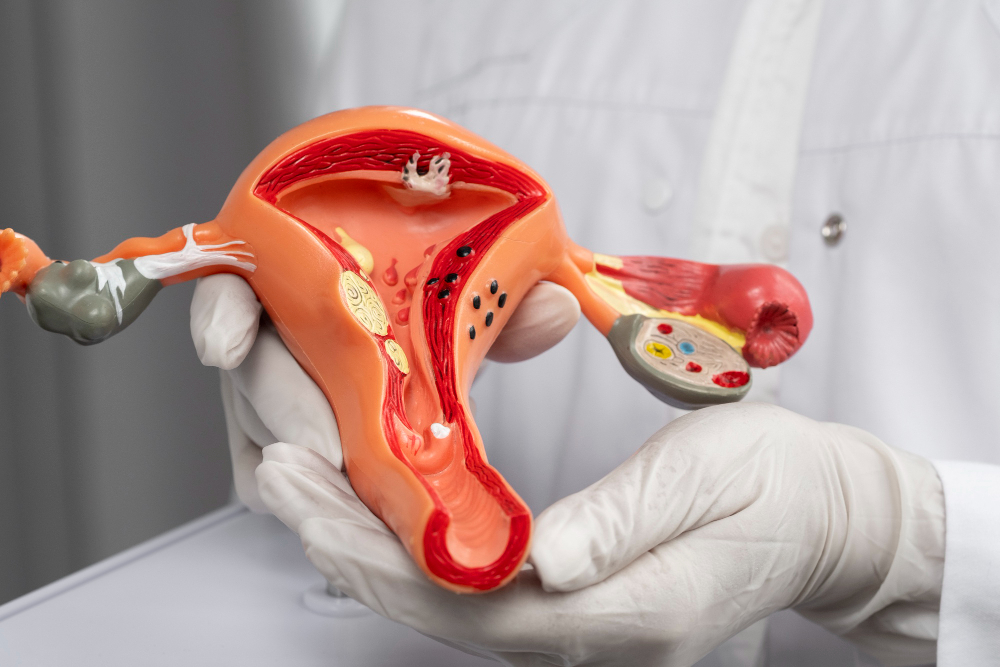Ovarian cysts are fluid-filled sacs that can develop on or within the ovaries. They are relatively common, especially in women of childbearing age, and often resolve without treatment. However, some cysts can grow large or cause discomfort, leading to the need for surgical intervention. A common question among women facing this situation is whether the removal of an ovarian cyst will lead to weight loss. In this article, we will explore the relationship between ovarian cyst removal and weight changes, the implications for overall health, and what women can expect post-surgery.

Understanding Ovarian Cysts
Before delving into the issue of weight loss, it’s crucial to understand what ovarian cysts are and how they can affect the body. Ovarian cysts can be classified into two main types: functional cysts and pathological cysts.
- Functional Cysts: These are related to the menstrual cycle and typically include follicular cysts and corpus luteum cysts. Most functional cysts are harmless and resolve on their own within a few months.
- Pathological Cysts: These include dermoid cysts, endometriomas, and cystadenomas, and may require surgical intervention if they grow larger or cause pain.
Symptoms of ovarian cysts can range from none at all to acute pain, hormonal imbalances, and complications like rupture or torsion. In some cases, surgery may be recommended to alleviate these symptoms, especially if the cysts are large or recurrent.
The Impact of Ovarian Cysts on Weight
Many women report unexpected weight gain or difficulty losing weight when dealing with ovarian cysts. This can be attributed to several factors:
- Hormonal Imbalances: Ovarian cysts can produce hormones that may lead to weight gain. For example, cysts related to polycystic ovarian syndrome (PCOS) often cause insulin resistance and lead to weight fluctuations.
- Fluid Retention: Large cysts can lead to bloating and fluid retention in the abdominal area, giving the impression of weight gain.
- Discomfort and Activity Levels: Chronic pain from cysts might hinder physical activity, leading to further weight gain.
Weight Changes Post-Surgery
When a cyst is surgically removed, is it realistic to expect weight loss? The answer is not straightforward and depends on various factors:
1. Nature of the Cyst
The size and type of the cyst can significantly influence post-surgery weight changes. A large cyst that causes discomfort or bloating may lead to immediate relief after removal, resulting in a noticeable difference in weight. In contrast, if the cyst was small or asymptomatic, the weight change may be negligible.
2. Symptoms Resolved
Women often report feeling lighter and less bloated after the removal of large or bothersome cysts. This can create an illusion of weight loss, although the overall change in body weight might not be substantial.
3. Hormonal Balance
Upon removal of cysts, especially those that have hormonal impacts, women might experience an improved hormonal balance. This can aid in weight loss over time as metabolic processes normalize. If the cyst was related to conditions like PCOS, managing the symptoms post-surgery can contribute to a healthy weight.
4. Lifestyle Changes
Post-surgery recovery often encourages women to adopt healthier lifestyle choices. Whether it’s due to a newfound perspective on health or a motivation to manage their symptoms better, many women find themselves more inclined to focus on diet and exercise, leading to potential weight loss.
5. Psychological Factors
Physical discomfort from ovarian cysts can affect emotional well-being, which sometimes leads to changes in eating habits—whether it’s stress eating or loss of appetite. After their removal, women may experience an improvement in mood and well-being, which can influence weight management.
The Recovery Phase
Recovery after an ovarian cyst removal—whether through laparoscopy or laparotomy—can influence your weight and overall health:
- Physical Recovery: It’s essential to allow your body to heal. Immediate weight changes may occur due to fluid loss, but sustainable weight management should be the goal.
- Focus on Nutrition: Post-surgery recovery is an excellent time to consider dietary adjustments. Balanced nutrition can enhance healing and support a healthy metabolism.
- Physical Activity: Gradual increase in physical activity, as advised by your healthcare provider, can help in managing weight and boosting mood.
When to Seek Professional Guidance
If you are struggling with weight management related to ovarian cysts, consider consulting healthcare professionals who can provide personalized advice. A gynecologist can help address underlying conditions, while a nutritionist can suggest dietary changes tailored to your needs. Additionally, mental health support may be beneficial for addressing emotional or psychological aspects related to weight, health, and body image.
Conclusion
The question of whether you will lose weight after the removal of an ovarian cyst involves several factors, ranging from the cyst’s type and size to hormonal influences and lifestyle changes. While immediate weight loss might not be guaranteed, many women experience alleviation of symptoms, which can lead to better health choices and a more positive outlook on body weight management.
Ultimately, the removal of an ovarian cyst can be a turning point in a woman’s health journey. It’s a time to reflect on overall well-being and consider the holistic approach to health that encompasses not just physical weight, but mental and emotional wellness as well. Adopting a multifaceted approach incorporating proper medical advice, nutrition, and exercise can lead to lasting benefits beyond mere numbers on a scale.


